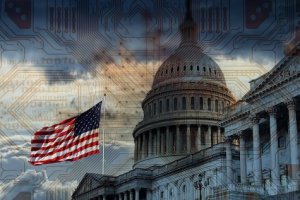Financial industry donations to members of Congress lead to the adoption of pro-bank policies
Well, here we go again. Only weeks ago the mass media and the establishments of both major parties united to paint candidates championing health care for all Americans as hopeless, pie-in-the-sky budget busters who were obviously unfit to occupy the Oval Office. Now as Corvid-19 brings the world economy to a screeching halt, a white shoe is suddenly showing up on the other foot: the U.S. government is rolling out single-payer insurance for finance and big business on a scale far beyond anything Senators Warren or Sanders ever dreamed of—and with even less legal safeguards and reporting requirements than the last, post-Lehman saturnalia.
As the phalanxes of lobbyists and campaign donors swarm over the Capitol and the White House, it seems an opportune time to review some basic truths about how money-driven political systems actually function. Our new study tries to do this in painstaking detail. It was, frankly, written because we are tired of hearing that it is impossible to show that Congressmen and women ever vote in favor of legislation because they receive vast streams of campaign contributions. Full Stop.
We deal with a classic problem of economics and political science—the extent to which governments can resist pressures from organized interest groups, and especially from finance. We begin with a look at the full “spectrum of political money” that is potentially relevant to understanding the choices of politicians, but then narrow down the analysis to a set of very specific cases of unique relevance to American politics right now: votes in the U.S. House of Representatives on measures to weaken the Dodd-Frank financial reform bill in the years following its passage. To control as many factors as possible that could influence floor voting by individual legislators, the analysis focuses on representatives who originally cast votes in favor of the bill but then subsequently voted to dismantle key provisions of it. This design rules out from the start most factors normally advanced by skeptics to explain vote shifts, since these are the same representatives, belonging to the same political party, representing substantially the same districts.
Our panel analysis, which also controls for spatial influences, highlights the importance of time-varying factors, especially political money, in moving representatives to shift their positions on amendments such as the “swaps push out” provision. Our results suggest that the links between campaign contributions from the financial sector and switches to a pro-bank vote were direct and substantial: For every $100,000 that Democratic representatives received from finance, the odds they would break with their party’s majority support for the Dodd-Frank legislation increased by 13.9 percent. Democratic representatives who voted in favor of finance often received $200,000–$300,000 from that sector, which raised the odds of switching by 25–40 percent.







